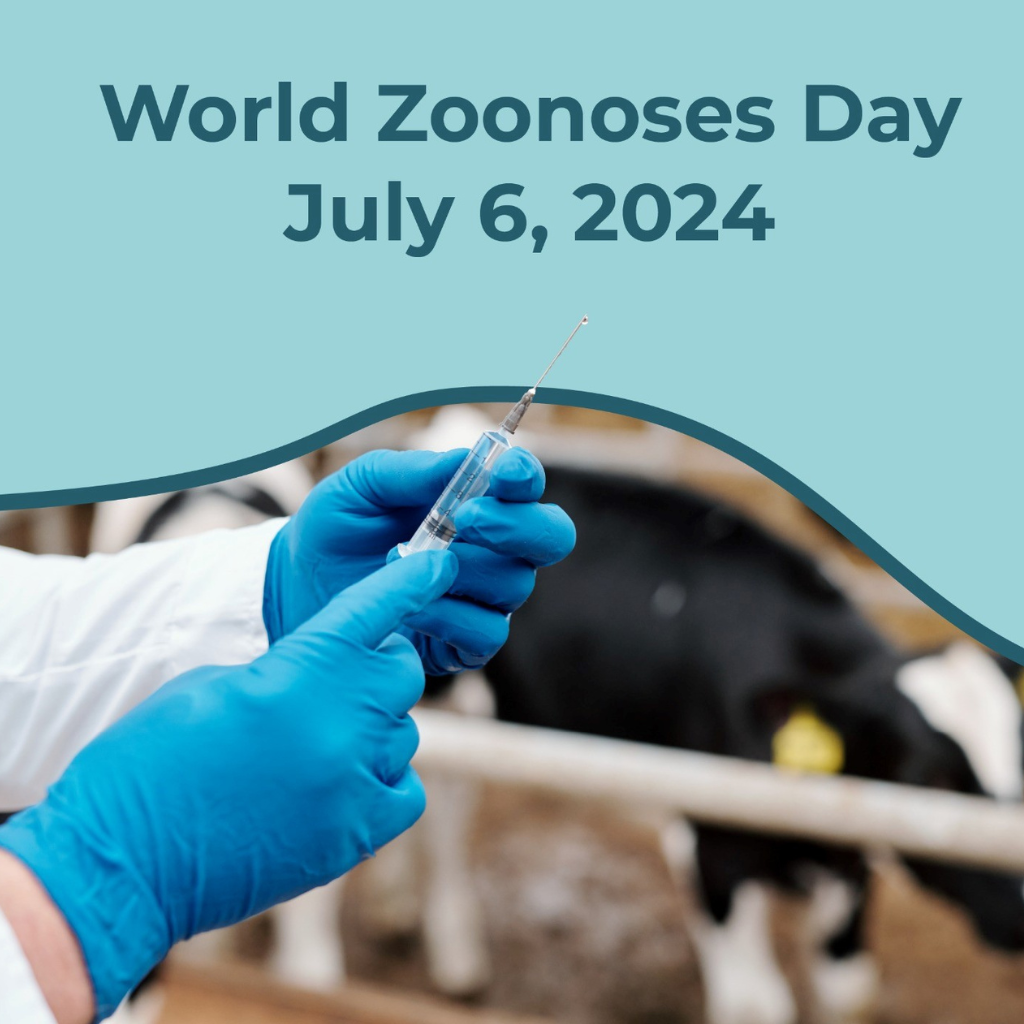History and Importance of World Zoonoses Day

On July 6, 1885, French biologist Louis Pasteur successfully administered the first rabies vaccine to a young boy who had been bitten by a rabid dog. This groundbreaking achievement not only saved the child's life but also marked a significant milestone in the fight against zoonotic diseases. Rabies is just one of many zoonotic diseases—others include avian influenza, Ebola, and the West Nile Virus.
Zoonotic pathogens, which can be viral, bacterial, or parasitic, spread to humans through direct contact with animals or indirectly via food, water, or the environment. These diseases do not only originate from wild animals like bats or monkeys; they can also come from pets and livestock. The use of antibiotics in animals raised for food further increases the potential for drug-resistant strains of zoonotic pathogens, highlighting the important role animals play in these infections.
The Role of Animals and Preventive Measures
Given the diverse types of zoonotic diseases, a range of treatments is available, including antibiotics. Preventing the spread of foodborne zoonotic diseases involves adhering to safe animal care practices in agriculture. Ensuring access to clean drinking water and proper waste disposal are crucial measures to reduce disease spread. Vaccinating household pets and maintaining good hygiene, such as washing hands after contact with animals, are also effective preventive strategies.
Managing and protecting the health of animals that live alongside humans is vital for safeguarding human health. When we prevent diseases in animals, we also protect ourselves.
Timeline of Key Events
2300 B.C.: The Mosaic Esmuna Code of Babylon records the first written account of rabies causing death in humans and dogs.
September 29, 1976: Ebola is discovered, named after the Ebola River in the Democratic Republic of Congo.
2009: The H1N1 influenza, also known as swine flu, causes a global outbreak with a death toll estimated by the CDC at over 284,000.
January 30, 2020: The World Health Organization declares the novel coronavirus outbreak a public health emergency of international concern.
Frequently Asked Questions

How to Observe World Zoonoses Day
Get Your Pet Vaccinated:
Ensure your pets, even indoor ones, receive their rabies vaccinations and keep their vaccination schedule up to date.
Get Yourself Vaccinated:
If you are at high risk of exposure to rabies, such as veterinarians or animal handlers, consider a pre-exposure rabies vaccination.
Support a Pet Shelter:
Volunteer or donate to local animal shelters, which can always use extra help and resources.
Educate Yourself:
Learn about zoonoses, including their signs, symptoms, and treatments, to better understand and prevent their spread.
Visit a Local Vet:
Consult veterinarians about how they diagnose and treat zoonotic diseases and get tips on protecting yourself and your pets.
Get Involved in Your Community:
Volunteer with local pet shelters or rescue organizations to help spread awareness about zoonoses.
Adopt, Don’t Shop:
Adopt pets from shelters or rescue organizations, where animals are often healthier and checked for zoonotic diseases.

Why World Zoonoses Day is Important
Raises Awareness About Animal-Borne Illnesses:
Highlights the critical link between animal health and human health.
Awareness of diseases like rabies, Salmonella, and ringworm helps in taking preventive measures.
Encourages Responsible Pet Ownership:
Promotes vaccinating pets, providing nutritious food, preventing parasites, and ensuring exercise and socialization.
Responsible pet ownership maintains both pet and human health.
Strives for Better Treatments for Animals:
Focuses on improving treatment for sick animals.
Encourages discussions on increasing access to veterinary care.
Promotes a better quality of life for animals through improved healthcare.
By celebrating World Zoonoses Day, we not only commemorate Louis Pasteur's pioneering work but also reinforce the ongoing importance of preventing and managing zoonotic diseases to protect both animal and human health.
Source: https://nationaltoday.com/world-zoonoses-day/
